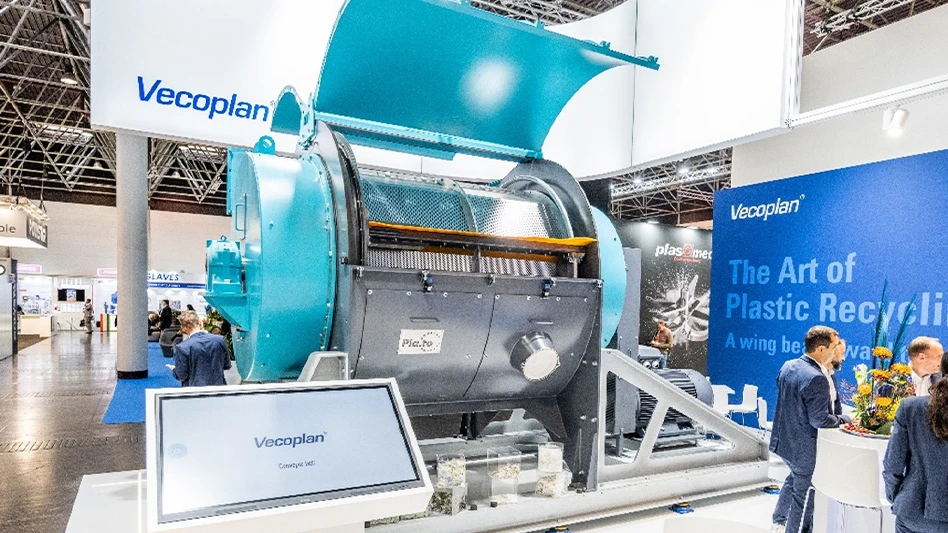
Photo by Megan Smalley
Pricing for bales of polyethylene terephthalate (PET) bottles and high-density polyethylene (HDPE) bottles are softening as supplies of these materials increase, according to sources whom Recycling Today contacted in mid-July.
A contact with an HDPE reprocessor based in California says plenty of supply is available, noting that volumes began increasing over the last two months. He adds that little export activity off the West Coast also has contributed to the “abundance” of scrap available.
The HDPE reprocessor says his company has reached the point where it is turning potential suppliers away as it’s reluctant to build inventory with the possibility of a recession looming.
A PET reprocessor with operations in the Southeast and Northeast says PET bale prices also are softening as supply increases, which is traditional in the summer months. However, the reprocessor notes that a major buyer of PET bales also is out of the market because of unplanned maintenance and therefore not purchasing material.
“In line with bales, flake pricing is beginning to reduce, though rPET (recycled PET) pellet pricing is still elevated due to the tightness and increased prices in virgin PET,” the reprocessor adds.
The PET reprocessor also points to the effects of rising inflation, which reached 9.1 percent year over year in June, the largest 12-month increase since 1981, according to The Economics Daily produced by the Bureau of Labor Statistics within the U.S. Department of Labor. “The market is seeing the first signs of pressure on consumer finances, impacting the fiber market [and] leading to lower volumes of rPET usage,” the reprocessor says.
“The rPET market dynamics moving through Q2 have remained relatively stable, bearing in mind the rapid rise in prices we saw during Q1,” the PET reprocessor continues. “We have seen much more volatility in virgin PET than rPET during Q2.”
The HDPE reprocessor says natural bottle bales are selling in the range of 45 cents to 48 cents per pound as of mid-July, while mixed-color bales are between 15 cents and 17 cents per pound. He says the decline in pricing started gradually but has been more substantial recently, ranging from 15 percent to 20 percent.
With prices declining and the potential for a recession, the HDPE reprocessor says companies are “fearful” of holding too many bales in inventory.
He describes sales of his company’s recycled HDPE as being “fairly robust,” though he worries that could change if the advance estimate for gross domestic product (GDP) in the second quarter, which the Bureau of Economic Analysis in the U.S. Department of Commerce is scheduled to release July 28, reveals a decline.
While a recession is defined as a period of sustained weak or negative growth in GDP that is accompanied by a significant rise in the unemployment rate, the HDPE reproccessor says the “lack of employees is the biggest elephant in the room,” noting that many companies are struggling to fill open positions.
On the bright side, he says freight rates "are definitely going in the right direction," adding that compared with December of last year, long-haul trucking rates have decreased by 35 percent to 45 percent, while short-haul rates have declined by 15 percent to 20 percent.
Latest from Recycling Today
- Equipment from the former Alton Steel to be auctioned
- Novelis resumes operations in Greensboro, Georgia
- Interchange 360 to operate alternative collection program under Washington’s RRA
- Waste Pro files brief supporting pause of FMCSA CDL eligibility rule
- Kuraray America receives APR design recognition for EVOH barrier resin
- Tire Industry Project publishes end-of-life tire management guide
- Des Moines project utilizes recycled wind turbine blades
- Charter Next Generation joins US Flexible Film Initiative





